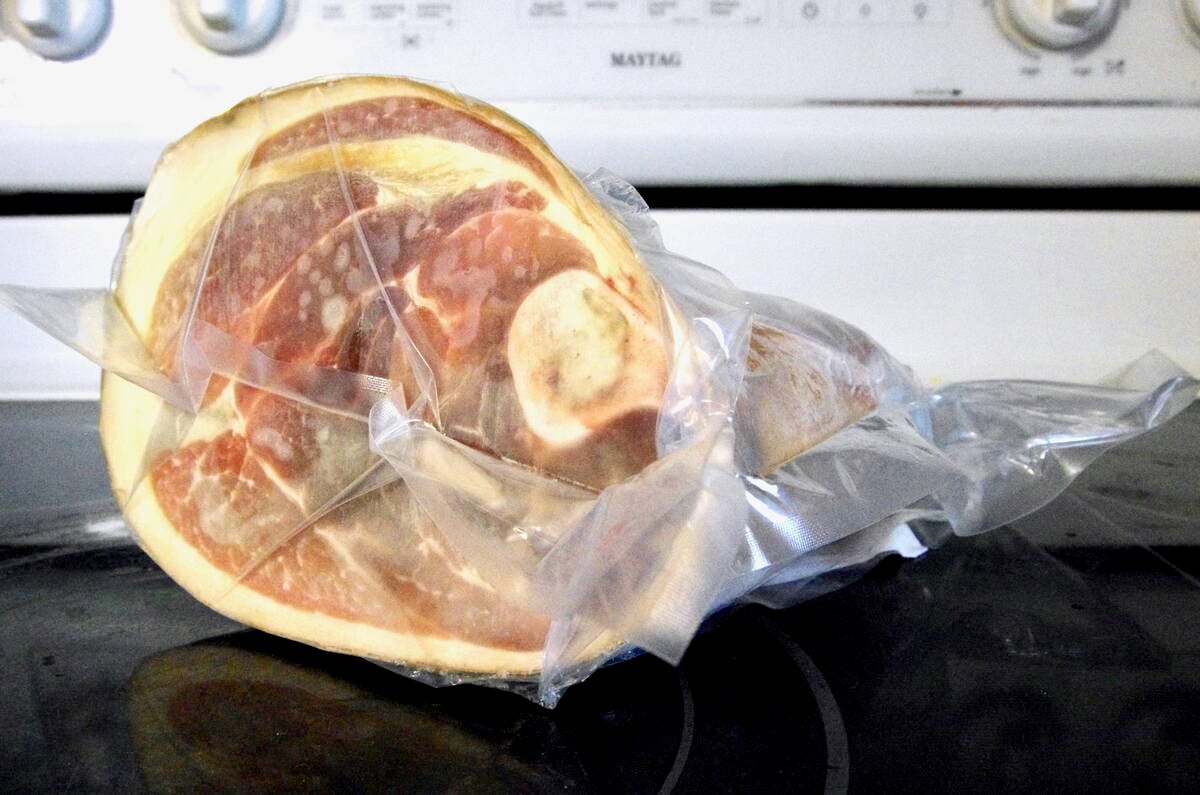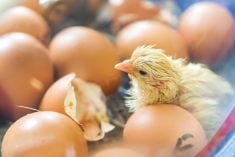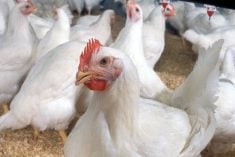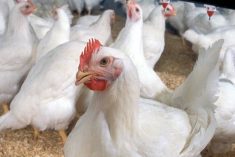A new system to sex eggs before they hatch funded by the Ontario Poultry Industry Council (OPIC) could change the way egg hatcheries operate around the world.
The machine is being commercialized by an unnamed Brockville, Ont. company and is set to enter the final testing phase later this year, said Harry Pelissero, general manager of the Egg Farmers of Ontario.
“There is a global demand for this technology,” Pelissero said in an interview. “It does represent a real export market for Canadian hatchery equipment manufacturers.”
Read Also

MANITOBA AG DAYS: Unmoved China tariffs worrying for Manitoba pork
Manitoba pork producers and Agriculture Minister Ron Kostyshyn have both noted lack of progress on Chinese tariffs on pork.
There’s already interest in the machine from the United States, Holland and Sweden.
“Literally the International Egg Commission, the international scene, is waiting for us to take this to commercialization level,” Pelissero said.
The discovery came as part of an ongoing research effort by the council, Pelissero told the Senate agriculture committee recently.
OPIC hired a McGill University professor five years ago to develop the technology for detecting infertile eggs.
“For every 12 eggs that come in from the farm, probably 10 are fertile and one or two aren’t,” Pelissero said. “If you’re able to identify which eggs are and you’re putting all fertile eggs in, it means that hatchery capacity is greater.”
Once the professor succeeded in the original task, the council asked him if it was possible to identify male and female eggs. “Fifty thousand dollars later, he came back with a yes,” Pelissero said, and OPIC moved quickly to patent the technology.
Getting the sex of the chicks right before they’re hatched would immediately nearly double the efficiency of egg hatcheries. The accuracy is at around 95 per cent currently with an end goal of 98 per cent accuracy.
Egg producers want only female chickens and until now male chickens have been an expensive inconvenience and animal welfare concern.
There are about 22 million laying hens in Canada, but to get 22 million hens the industry currently needs to incubate about 50 million eggs.
“Now if you only need to incubate 22 million eggs, you’re doubling the hatchery capacity,” Pelissero said.
The gender identification machine would be priced to encourage hatcheries to acquire them to test incoming eggs so they can divert the male and infertile ones to appropriate markets, he said.
“We’re trying to do it for a nickel per egg, which we think is reasonable,” Pelissero said.
It would end the practice of destroying male chicks because their eggs could be diverted to the broiler or other markets, he said.
“It’s a huge welfare issue to dispose of these male chicks when they are hatched a day old,” Pelissero said.
Likewise another problem, infertile eggs, may someday become an opportunity and be in demand for a medicine to treat depression in humans.
Egg Farmers of Ontario is supporting research by United Paragon Associates, which is testing whether an egg that has been incubated for a few days could be used to make a drug called Rellidep that will treat depression.
“They do have some really good information, and they are just in the process of getting in the second round of trials on that type of thing, so that would be huge,” Pelissero said. “It falls right into everything with the gender identification, because those eggs could be diverted to that program.”
If the research succeeds, it could create a whole new demand for eggs, Pelissero said.
The egg-sexing technology could also be applied to turkey and other fowl.
















